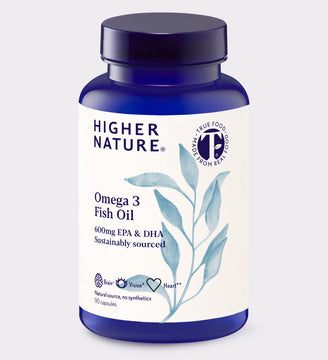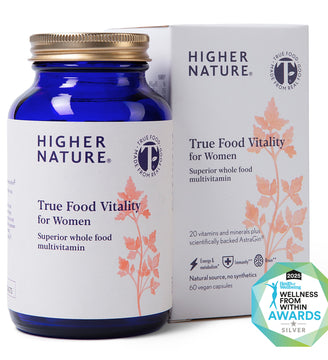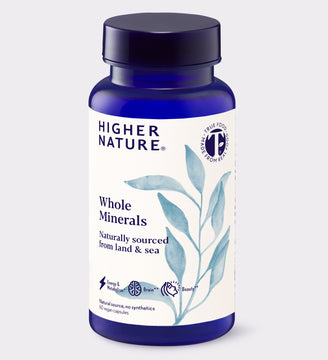
Five of the best tips to keep you sleeping well this summer
Higher Nature Nutrition Team
Take digital downtime
Melatonin is the hormone naturally produced during the evening which instructs the parts of the brain involved in generating sleep to get ready to swing into action to make us feel like we want to go to sleep. It also regulates the timing of our sleep/wake cycle, known as circadian rhythm. Research shows using blue light emitting screens in the hours before bedtime delays melatonin production by some three or more hours, as well as disrupting REM sleep, the dreaming sleep state vital for emotional well-being and information processing. So cut it out in the hours before bed.
Keep your cool
Successful nodding off requires core body temperature to drop by a degree, which triggers melatonin release. A great way to encourage this even in warmer weather is to take a warm bath. This causes the blood vessels to come to the surface, effectively releasing heat from our core, decreasing our temperature, revving up our desire to sleep.
Routine, routine, routine
Perhaps the single most important factor for good sleep is establishing a regular sleep routine to help set circadian rhythm. This means going to bed and getting up at the same time each day, even at weekends. Regular meal times helps reinforce this pattern so try to have at least your breakfast at the same time each day.
Take a natural sleep supplement
Melatonin is formed in the brain from the neurotransmitter serotonin. The building block for serotonin are the amino acids tryptophan or 5-hydroxytryptophan or 5-HTP. Taking 5-HTP around 45 minutes before bedtime can be a useful way to support the sleep cycle.
The pungent smelling herb valerian has long been used to promote a good night’s sleep - both reducing the amount of time taken to fall asleep and encouraging better quality sleep. It is thought this is due to increased GABA levels in the brain - one of the neurotransmitters the brain produces to make us feel calm.
Say no to stimulants
Caffeine is a stimulant and as well as making you feel alert and awake, also reduces your sleep pressure, or the desire to fall asleep. Did you know style box? - Caffeine blocks the sensitivity of the brain to the chemical adenosine, which is responsible for amplifying the sleep inducing areas of the brain. If you have caffeine later in the day, try taking theanine, the amino acid in green tea which is thought to counteract caffeine's stimulatory effect by increasing calming neurotransmitters in the brain.
Whilst alcohol acts as a sedative, binding to receptors in the brain preventing them from firing, and helping you drop off, it does not induce natural healthy sleep - rather the opposite, fragmenting sleep and suppressing restorative REM sleep as it breaks down in the body.


















